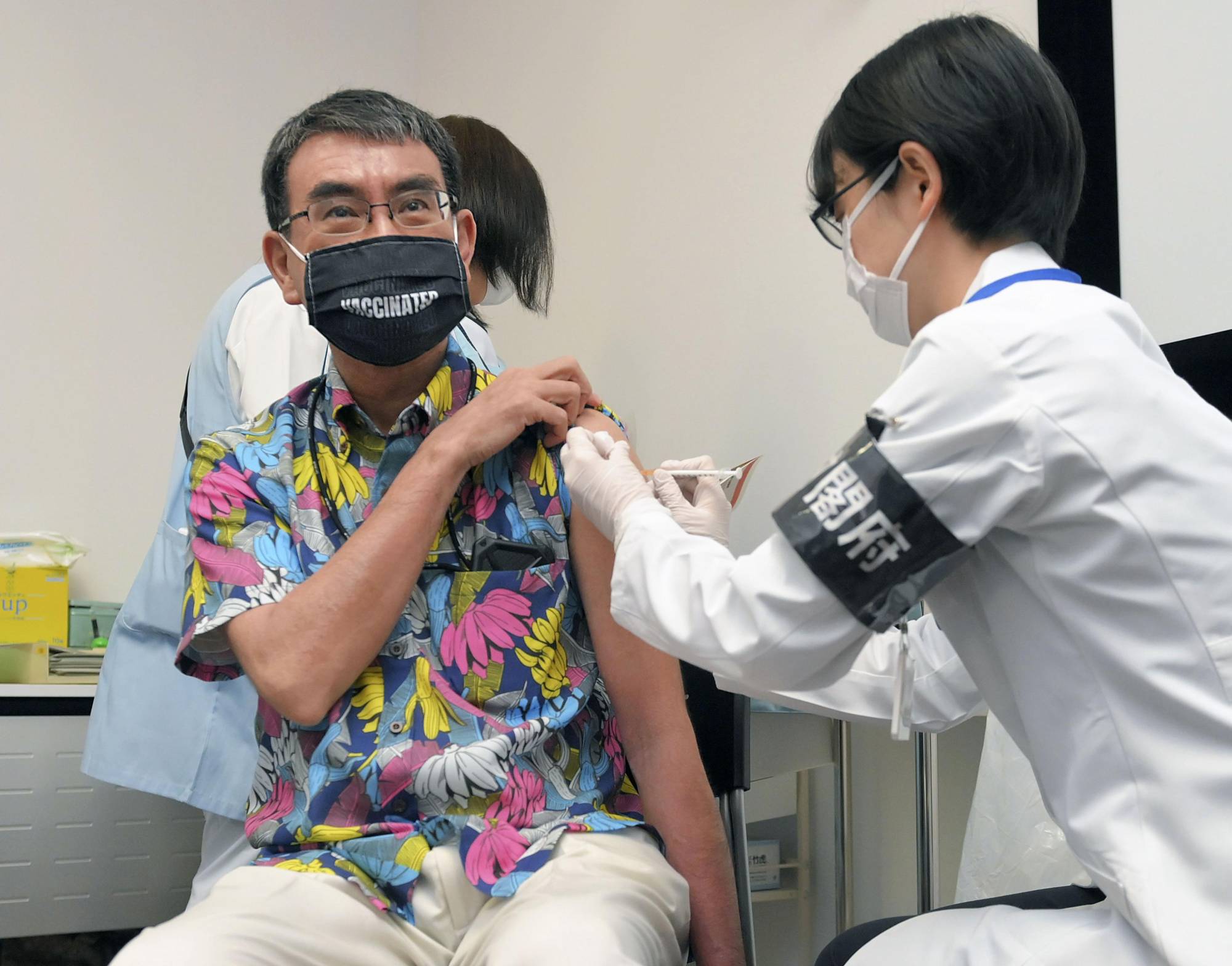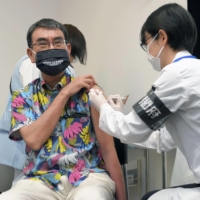Can a Japanese mom’s YouTube post keep anti-vax conspiracies at bay?
The videos appearing on the EmiAly Mommy TV YouTube channel capture the daily life of a Japanese mother named Junko living in California. The uploads explore what may be run-of-the-mill happenings for most Americans, but can be fascinating looks at life abroad for Japanese viewers. Examples of her work include a video tour of her local supermarket and a look at her morning routine. In 2021, she added a video on getting vaccinated to her collection.
The recent upload follows her as she receives two doses of Moderna. She shows the process of being inoculated and the side-effects afterward — in all their gnarly details — highlighted by, in her case, a fever of 39 degrees Celsius. Her goal, according to the description, is to educate her Japanese viewers as to what is in store for them as vaccination appointments begin to open up here.
It’s much more than just lifestyle content. Videos and posts from Japanese people who have received COVID-19 vaccinations, often from abroad, provide the rare ability to cut through social media, which exists in a perpetual state of high anxiety thanks to a concoction of cynicism, outrage and conspiracy theories. Junko is an ordinary person who shows us exactly what us average Joes can expect, which might be more relatable than a Taro Kono clip (great shirt, though).


Every country has its share of skeptics and disinformation when it comes to vaccines, and Japan’s anti-vax crowd is also active offline, via newsletters and sound trucks. Social media moves faster, however, and a hoax can go viral quickly — especially in a tense environment. The initial slow rollout of vaccinations here, coupled with a history of public concern over side effects has made sites such as Twitter particularly susceptible to the “I’m just asking questions” posts that can act as a gateway to conspiracy theories.
Things reached that point just last week when Yahoo! News ran a piece by psychology professor Takayuki Harada exploring why people gravitate toward conspiracy theories and other hoaxes (dubbed “dema” in Japanese). The piece was shared enough on Twitter to land on the “trending” tab, but clicking on it led to plenty of chaotic actors peddling conspiracies.
[embedded content]
[embedded content]
So why not opt for a more personal touch? EmiAly Mommy TV’s vaccine report is part of an emerging trend of online uploads that ignore conspiracies, politics and sometimes even science in favor of demonstrating how most people will actually experience the jab. Videos from English-learning channel Hapa Eikaiwa and Spain-based vlogger LiaLico have received decent attention for outlining the process and resulting side effects, and smaller Japanese creators around the world have followed. Even some based here have begun sharing similar experiences aimed at highlighting what getting inoculated is like.
Maybe the best way to counter conspiracies is to turn vaccinations into a fun trend. That’s starting to happen on Japanese TikTok, where those abroad report on how their shots went, and Japan-based accounts share footage of older people getting it … hamming it up while doing so. Not to imply TikTok is always a bastion of truth, but the positive spin coupled with the more personal touch of some creators demonstrates one way to keep conspiracies at bay.
In a time of both misinformation and too much information, quality journalism is more crucial than ever.
By subscribing, you can help us get the story right.



